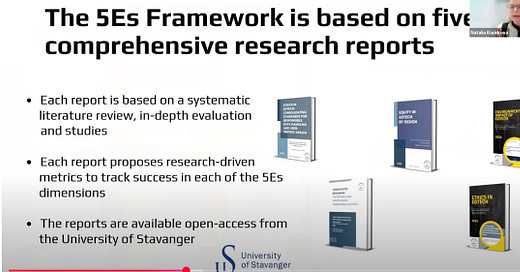Why Certifications Matter: Building Credibility and Market Access in Edtech
Evidence-based certifications can help edtech companies gain trust and meet the needs of schools and policymakers
Whether you’re pitching to investors, partnering with schools, or gaining the trust of parents, the first question is increasingly the same: Does the product work? Evidence of impact is no longer a “nice to have”— it’s a must. Stakeholders want to know that the tool they’re adopting actually benefits learning. And one of the clearest ways to show that is a certification of evidence of impact. A trusted certification signals that your product meets rigorous, research-based standards, making it easier for decision-makers to choose your solution with confidence.
At the International Centre for EdTech Impact, we’ve supported several edtech providers on their certification journeys and observed how the landscape has shifted in recent years. What was once a scattered and inconsistent system, or what we used to refer to as the Wild West of Certifications, is becoming more coordinated. There is now growing alignment among certification providers, reducing the need for companies to pursue multiple certifications for similar types of evidence. This is useful for both companies and educators: developers save time and resources, and schools can more easily find tools that meet clear standards.
A major step forward is the equivalence scheme developed by EduEvidence, an international certification body focused on evaluating the impact of edtech tools. This scheme allows companies with one recognized certification to be re-certified against an internationally accepted benchmark. Our Centre has played a role in developing this process. Our Director, Professor Natalia I. Kucirkova, helped create the 5Es framework that underpins EduEvidence’s assessment process and broader international standards. Our researchers also support the evaluation of submitted tools to ensure the certification reflects real-world impact.
To support both edtech founders and education stakeholders, EduEvidence’s certification system is now connected with the EdTech Index by ISTE, which allows US school leaders and policymakers to search for certified tools by category and evidence type —you can find EduEvidence certifications under “evidence-based” in the Index.
In the spirit of partnerships, EduEvidence recently co-hosted two webinars with ISTE (USA) and EdTech Tulna (India). These sessions provided practical guidance on what certification criteria edtech providers need to meet and how certification affects school and government decision-making. The ISTE webinar also featured a case study from an international edtech company that has used certification to support growth: GraphoGame from Finland (check out their impressive evidence page inspired by the certification process with EduEvidence!).
Recordings of the webinars are available and useful for early-stage startups and more established edtech companies alike.
Let us know in comments below if you have any questions or reach out to info@foreduimpact.org



